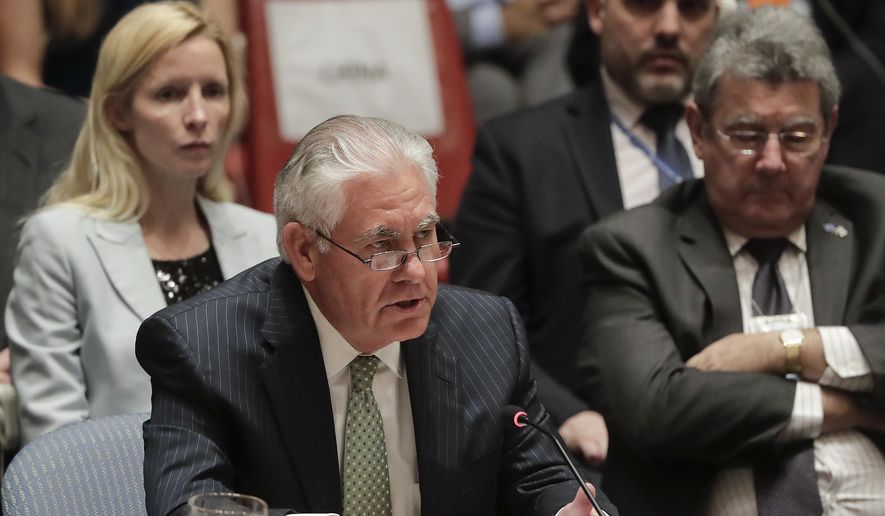WASHINGTON (AP) — Secretary of State Rex W. Tillerson will meet Tuesday with Cuba’s top diplomat, U.S. officials said, as the United States is seeking answers about mysterious “attacks” on its diplomats in Havana.
Tillerson’s meeting with Cuban Foreign Minister Bruno Rodriguez is believed to be the highest-level diplomatic contact between the two countries since the start of President Donald Trump’s administration in January. It comes as the delicate rapprochement between the longtime foes, started under President Barack Obama, is being jeopardized by mounting alarm over the unexplained incidents that have harmed at least 21 Americans.
The meeting at the State Department will follow a speech Rodriguez delivered at the United Nations last week in which he harshly criticized Trump and his administration’s policy toward the communist island. In a bid to show it’s a good neighbor, Cuba has also offered to send doctors and humanitarian aid to Puerto Rico to help the U.S. respond to Hurricane Maria.
For months after U.S. diplomats started falling ill in Havana, the U.S. and Cuba sought to prevent the issue from becoming an overriding irritant in the relationship. Neither country disclosed publicly that the incidents were occurring, even after Washington in May expelled two Cuban diplomats to protest Havana’s failure to protect Americans on its soil.
Deputy Secretary of State John Sullivan told Congress on Tuesday that it was a reasonable suspicion that Cuban authorities either were involved in the incidents or at least knew they were occurring. Cuba keeps tight surveillance on American diplomats in the country and would be likely to know if something significant were happening to them.
But Sullivan acknowledged that with so much unknown, even that assumption is less than certain, and added: “As a U.S. government official, I don’t know that.”
Yet while the U.S. has avoided blaming Cuba directly for the incidents, the growing public outrage has forced both countries to adopt a tougher tone.
Tillerson has said that closing the newly re-opened U.S. Embassy in Havana is under consideration, and several U.S. lawmakers have called on the Trump administration to expel all Cuban diplomats from Washington.
At least 21 U.S. diplomats and their families have suffered a variety of physical symptoms since late last year as a result of what Tillerson has described as “health attacks.” Some have been diagnosed with mild brain injury and permanent hearing loss. U.S. investigators have pursued the possibility the attacks were carried out with some sort of sonic device but have been unable to determine the cause or a culprit.
Last week, U.S. diplomats held another high-level meeting with Cuba amid concerns about the incidents. That meeting at the State Department included Cuban official Josefina Vidal, who has been the public face of Cuba’s diplomatic opening with the U.S., and other Cuban officials.
“We’ve had regular contact to register our deep concern with what’s happened in Havana and to remind the Cuban government its obligation under the Geneva convention to protect our embassy employees and their families down there,” Sullivan said.
Cuba has denied any knowledge or involvement. In his U.N. speech last week, Rodriguez said early results from Cuba’s own investigation have “found no evidence whatsoever that could confirm the causes or the origin” of the incidents, implicitly casting doubt on the U.S. version of accounts.
“It would be unfortunate if a matter of this nature is politicized,” said Rodriguez, who has represented Cuba on the world stage for years.
Of the 21 medically confirmed U.S. individuals affected — diplomats and their families — some have permanent hearing loss or concussions, while others suffered nausea, headaches and ear-ringing. Some are struggling with concentration or common word recall, The Associated Press has reported.
The U.S. has said the tally of Americans affected could grow as more cases are potentially detected. The State Department has emphasized that the U.S. still doesn’t know what has occurred.




Please read our comment policy before commenting.